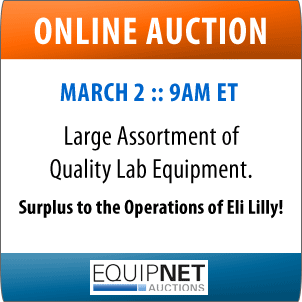|
Jun 07
2010
|
No 5: Why It's Best to Cooperate with an Unannounced FDA InspectionPosted by: PIA in Tagged in: Untagged
|
|
Sign up to receive these free articles weekly
No. 5: June 7-11, 2010
Why It's Best to Cooperate with an Unannounced FDA Inspection
Scenario:
Dr. McCoy has filed an investigational new drug (IND) application to conduct a clinical study using a marketed drug in a manner that is not approved by the Food and Drug Administration (FDA). Dr. McCoy is the IND sponsor-investigator.
During the clinical trial Dr. McCoy terminates one of his research nurses, Ms. Meyers, because she expresses concern that he is not complying with the applicable IND regulations. She then contacts the local FDA district office and informs the compliance officer of her concerns. The FDA decides that an inspection of Dr. McCoy’s research is warranted.
An FDA investigator shows up unannounced at Dr. McCoy’s research office and issues him a Form FDA 482, Notice of Inspection. Dr. McCoy informs the FDA investigator that patient records are confidential and refuses to allow the investigator access to any documentation regarding the IND study he is conducting.
Issue:
This is a “for cause” inspection as a result of the information provided by Ms. Meyers. Therefore the FDA shows up unannounced. Dr. McCoy refuses to permit FDA access to the IND records. The FDA investigator issues a Form FDA 483, Notice of Observation, which states “Failure to permit an authorized officer of FDA to have access to, copy, or verify records or reports related to the conduct of the IND study.” Further attempts by FDA to access the records results in Dr. McCoy referring the FDA investigator to his attorney.
Three months later Dr. McCoy receives a warning letter from the FDA.
Solution:
When the FDA visits a facility and issues a Form FDA 482, allow the investigator to enter and conduct the inspection. Determine the purpose of the visit and cooperate. If the clinical researcher is conducting a clinical trial under an IND there are few documents that the FDA does not have authority to access and copy.
Lesson learned:
Allowing an FDA investigator to conduct a lawful investigation is required by federal regulation. A clinical researcher who has been complying with the obligations of an IND sponsor-investigator should have no concern about the inspection.
There may be observations cited by the investigator, but also opportunity to respond. If the response is satisfactory to the FDA, there will be no sanctions. If the response demonstrates a disregard for the regulations and the protection of human-research subjects, there are consequences. A warning letter is the first of several sanctions at the disposal of the FDA. Warning letters are accessible to all on the FDA Web site (http://www.fda.gov/ICECI/EnforcementActions/WarningLetters/default.htm).
Pertinent Rule/Regulation:
21 CFR 312.58 and 312.68 state that an IND sponsor or investigator shall, upon request from any properly authorized officer or employee of the FDA at reasonable times, permit such officer or employee to have access to, copy, and verify any records and reports relating to a clinical investigation conducted under an IND. Failure to do so constitutes a refusal to permit inspection of records to which FDA is entitled to access.
Comments by Harvey M. Arbit, PharmD, MBA, president of Arbit Consulting, LLC. He specializes in FDA regulatory affairs related to investigator-initiated IND and IDE research.
written by Jeff Punch, June 08, 2010
written by Dr. Arbit, June 08, 2010
Top finds
- Migliori Siti Di Poker Online
- Casino Non Aams
- Migliori Slot Online
- Casino Not On Gamstop
- Casino Not On Gamstop
- Migliori Casino Online Italia
- Non Gamstop Casinos UK
- Best Non Gamstop Casinos
- Non Gamstop Casino Sites UK
- Non Gamstop Casinos
- Sites Not On Gamstop
- Betting Sites Not On Gamstop UK
- Best Online Casino Canada
- オンラインカジノ
- Real Poker Online
- Slots Not On Gamstop
- Non Gamstop Casinos
- Non Gamstop Casino Sites UK
- UK Casino Sites Not On Gamstop
- Slots Not On Gamstop
- Non Gamstop Casino Sites UK
- Casino Sites Not On Gamstop
- Meilleur Casino En Ligne
- UK Casino Not On Gamstop
- Best Betting Sites Not On Gamstop
- Migliori Casino Non Aams
- Top 10 Casino En Ligne Belgique
- Meilleur Casino En Ligne Belgique
- Migliori Casino Online Esteri
- 仮想通貨 カジノ 入金ボーナス
- Live Casino France
- Casino En Ligne 2026
- Casino Français En Ligne
- Casino Sicuri Non Aams
- 코인카지노 사이트
- Meilleur Casino En Ligne
- Casino En Ligne 2026
- Casino En Ligne
- Casino En Ligne Français



